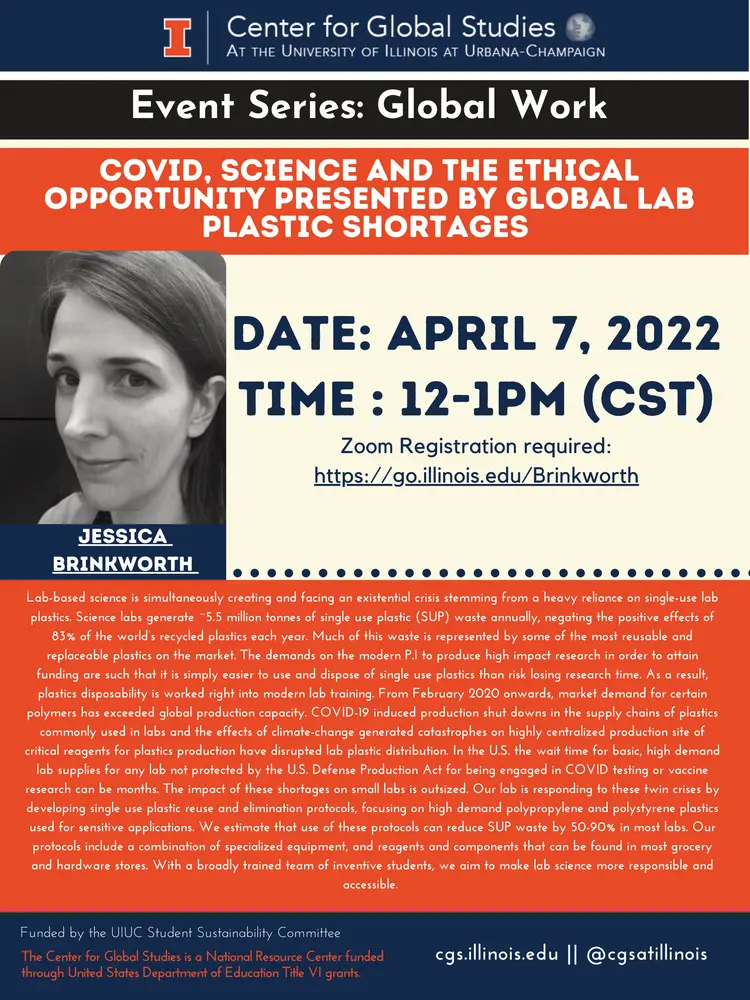
On April 7, 2022 at 12pm (CST) on Zoom, Prof. Jessica Brinkworth (UIUC Anthropology) will give a talk exploring the impact of the COVID-19 Pandemic and labratory work's reliance on single-use plastics. Lab-based science is simultaneously creating and facing an existential crisis stemming from a heavy reliance on single-use lab plastics. Science labs generate ~5.5 million tonnes of single use plastic (SUP) waste annually, negating the positive effects of 83% of the world’s recycled plastics each year. Much of this waste is represented by some of the most reusable and replaceable plastics on the market. The demands on the modern P.I to produce high impact research in order to attain funding are such that it is simply easier to use and dispose of single use plastics than risk losing research time. As a result, plastics disposability is worked right into modern lab training. From February 2020 onwards, market demand for certain polymers has exceeded global production capacity. COVID-19 induced production shut downs in the supply chains of plastics commonly used in labs and the effects of climate-change generated catastrophes on highly centralized production site of critical reagents for plastics production have disrupted lab plastic distribution. In the U.S. the wait time for basic, high demand lab supplies for any lab not protected by the U.S. Defense Production Act for being engaged in COVID testing or vaccine research can be months. The impact of these shortages on small labs is outsized. Our lab is responding to these twin crises by developing single use plastic reuse and elimination protocols, focusing on high demand polypropylene and polystyrene plastics used for sensitive applications. We estimate that use of these protocols can reduce SUP waste by 50-90% in most labs. Our protocols include a combination of specialized equipment, and reagents and components that can be found in most grocery and hardware stores. With a broadly trained team of inventive students, we aim to make lab science more responsible and accessible.
If you are interested in collaborating, learning more, or adopting these protocols, reach out to Professor Brinkworth at: jfbrinkw@illinois.edu
For more information see:
UIUC Student Sustainability Committee:
https://studentengagement.illinois.edu/student-sustainability/ssc/
United States Contribution to plastic waste in land and ocean:
https://www.science.org/doi/10.1126/sciadv.abd0288
Strategies to reduce the global carbon footprint of plastics:
https://www.nature.com/articles/s41558-019-0459-z
Tearfund report on human impact of plastic waste:
You can download the PewTrust report on Preventing Plastic Pollution:
UNEP's page discussing current deliberations for a global plastics agreement:
https://www.unep.org/news-and-stories/story/unep-head-responds-questions-global-plastics-agreement
UNEP's report on plastic pollution "Drowning in plastic":
https://wedocs.unep.org/xmlui/bitstream/handle/20.500.11822/36964/VITGRAPH.pdf
Zoom Recording: